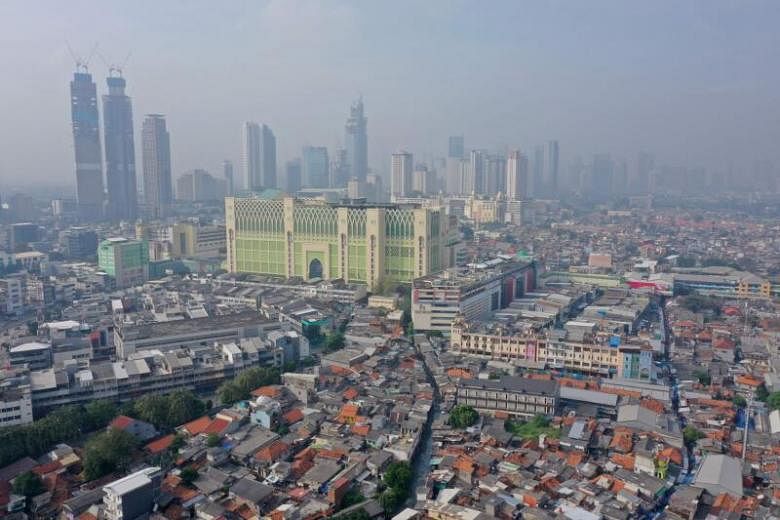JAKARTA - Indonesia is set to relax property rules soon to make it easier for foreigners to own homes in the country, a Cabinet minister said on Thursday (July 23), in a major change that could spur the slumping economy.
Agrarian and Spatial Planning Minister Sofyan Djalil told property tycoons in a webinar that the new property rules set to be ratified into law by the end of next month (August), will allow foreigners to have the same rights as Indonesian property buyers.
"On this foreign ownership matter, God willing… we will have (the Bill that covers the matter) ratified into law by end-August," Mr Sofyan said in the Web seminar attended by the country's top property tycoons, which was organised by the Indonesian Real Estate Developers Association (REI).
"That is the commitment from Parliament and President Joko Widodo had requested for such a timeline to be the deadline."
Among the webinar's participants were Mr James Riady of the Lippo Group, Mr Muktar Widjaja of the Sinar Mas Group and Mr Sugianto Kusuma of Agung Sedayu group.
The government's plan to loosen the property rules comes amid the coronavirus pandemic that has shrunk the economy and caused massive job losses.
South-east Asia's biggest economy was estimated to have shrunk by at least 3 per cent in the second quarter year on year, compared with a 5 per cent growth last year.
The Indonesian property sector supports at least 170 other industries from cement, steel and the creative industries such as interior decor. The sector employs more than 30 million people or about 11 per cent of the country's population.
Foreigners are currently allowed to buy apartments, but not landed homes, in Indonesia and they only get a 30-year leasehold titles for these units, which made it tough to get bank loans.
The 30-year leasehold is extendable by another 20 years upon application. Buyers could also later apply for an additional 30-year extension to the leasehold atop the 50-year lease.
But this has posed a big stumbling block for foreign buyers and soured demand, as Indonesian law could change in between their applications.
In contrast, Indonesians who buy properties in the country generally get a freehold tenure to their homes, or leaseholds with guaranteed extensions.
Further, in many other foreign countries, such as Singapore and Malaysia, leasehold titles have terms of more than 90 years at one go.
Mr Sofyan said President Joko and the government are concerned with the current inflexible clauses of ownership and want them changed.
He said that the administration is keen to upgrade the ownership title status given to foreigners when buying homes.
But Mr Sofyan did not say if the expected amendment to the law would allow the non-Indonesians to also buy landed houses.
Responding to Mr Sofyan's August timeline, Mr Sugianto said in the webinar: "It is the right timing if the change happens in August, because everyone is waiting for this. It would drive the property sector."
Mr Sugianto suggested that the change should be accompanied by regulations that allow foreigners and their family to a have long stay visas or permanent residency like other countries such as Malaysia and Thailand.
"Other countries give 10-year multi-year visa for the whole family of the foreign home owners. If Indonesia gives five-year and it's extendable, that would be good enough," he said.
Mr Muktar suggested that foreign home buyers should be given access to financing. He said they should be allowed to pledge the title of the units they buy to a bank to get a mortgage.
"The property sector has huge multiplier effects. Foreigners buying homes in Indonesia are bringing in money. They can't take the property to their home country," Mr Muktar said. His comments were seen as an attempt to assuage nationalist sentiments frequently expressed in Indonesia by those opposed to foreigners being allowed to own property.
Mr Riady, meanwhile, took issue with the tax office's recent moves to question prospective buyers of large properties. The moves have dissuaded the buyers being probed.
Indonesia has in recent years stepped up tax collections, applying a harsher law enforcement on errant tax-payers.
"We need to simplify this - the query on where-the-money-is-from part. We have had clients who were about to make a transaction and were then drilled by the tax office. They ended up cancelling the purchase," he said.


